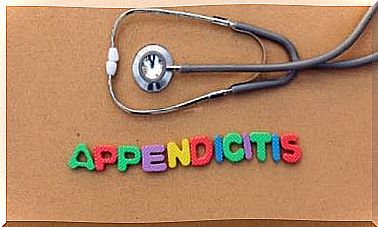Tips For Successful Weaning From Night Feedings

Every child and every situation is unique. However, if you’re considering weaning off night feedings, here are some tips to make the process as successful as possible.
The moment a mother decides to wean her baby, many doubts arise. In addition, she may be confronted with the opinions of others.
It is important for mothers to remember that the decision is solely her own and that there is no ‘right’ age to wean off night feedings. This is purely a personal decision. Likewise, if you’re ready to wean your little one at night, we’d like to give you some advice.
Whether you’re breastfeeding or bottle feeding your baby, there’s no rush to stop. Over time, your baby will sleep through on its own. However, if you’re feeling tired or irritable or think your baby is physically ready for this change, then it’s a good time to wean off night feedings.
Questions that arise when weaning off night feedings
Below we will discuss some of the most common questions mothers have about successfully weaning off night feedings.
How do I know if my baby is ready to wean off night feedings?
Do not panic! Every baby is different. If your baby is between 4 and 6 months old, it’s a good time to start weaning. By this time, most babies are getting enough calories during the day to sleep for up to 5 or 6 hours straight.
Of course, that doesn’t mean your baby isn’t waking up more often to feed. But this is more out of habit than a response to a physical need. Your baby is used to waking up often to feed, so you need time to change this part of his or her routine.

In addition, you should ask yourself if your baby is trying to bond with you. Breastfeeding is about more than just nutrition.
Some mothers cannot spend much time with their children during the day. So your child may want to make up for lost time and connect with you at night.
Another reason your baby wakes up often is because his or her teeth are starting to come through. At the same time, your baby may be experiencing a different kind of discomfort, such as a cold or some other developmental change.
That’s why it’s vital to wean your baby gradually rather than abruptly. This is a time when your baby needs you and needs to feel protected. If you have any major doubts, don’t hesitate to discuss them with your pediatrician.
What steps should I take?
Now we move on to the steps you need to take to wean off night feedings.
- Be mindful of your baby’s feelings. When you decide to let your child get used to it, you have to understand that this can lead to frustrations for your child. Be respectful of your child’s feelings, which are completely understandable.
- Do not deny your own feelings as a mother. It is normal for mothers to feel guilty and relieved at the same time. Try not to be too hard on yourself.
- Analyze the moment when you want to start weaning. If you’re moving, expecting another baby, or sending your child to daycare, now might not be the best time to start. In the midst of a delicate moment or change in your family, it’s best to wean yourself off night feedings. Your baby needs more attention and affection to make up for this lack.
- Offer plenty of food and liquids. When your baby wants to wake up and ask to breastfeed, offer an alternative such as water.
Also consider the following
- Place your baby in his or her own bed. The excitement of feeling big, or sleeping with a sibling or in another room can make the process easier. However, your child should not see this as an obligation, and you should not force it if there is resistance.
- Involve your partner in weaning. The process is usually much more effective when fathers understand what this change means for their babies. Fathers should also comfort their babies when they are upset to provide distraction, affection and support.
- Take a step back or stop if you have to. It’s important to be flexible and willing to make adjustments if things don’t work out. Even if you’re confident in your decision, you can always take a step back and wait a little longer if you need to.

According to the experts
There are many experts who have expressed their opinion on this matter. First of all, the WHO (World Health Organization) recommends exclusive breastfeeding during the first six months of a baby’s life. They also recommend continuing to breastfeed – along with a supplemental diet – until children are at least 2 years old.
Pediatrician Richard Ferber also tackles the problem in his book entitled Solve Your Child’s Sleep Problems ( not available in Dutch ). According to Ferber, waking up unnecessarily multiple times during the night can lead to sleep disturbances.
The Ferber method states that if a child wakes up multiple times to eat or because of digestive problems, it can start a vicious cycle of wanting to eat even more.
Finally, pediatrician William Sears emphasizes the benefits of nighttime feedings in strengthening the bonds between children and parents. He encourages parents not to wean at night. Or to postpone it as much as possible – of course, as long as the night feedings are not a problem for the family.
In his book, The Baby Sleep Book , Sears offers strategies for putting your baby to sleep and feeding him or her in bed so that nighttime feedings are easier for parents.
In conclusion, these are just suggestions and opinions. Like any parenting decision, only you decide when to start weaning off night feedings. Do what you think is best for you and your baby.









